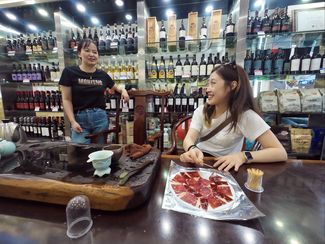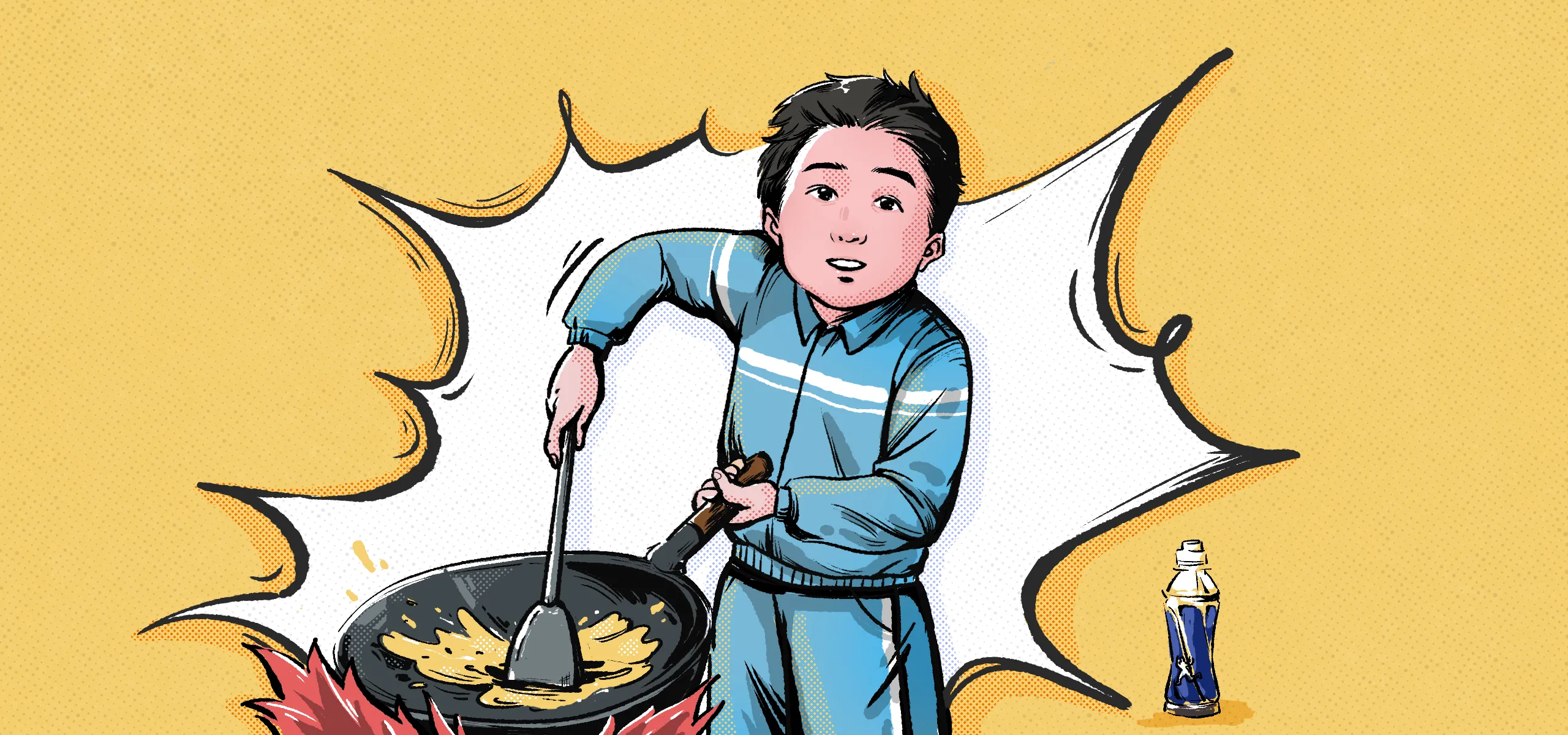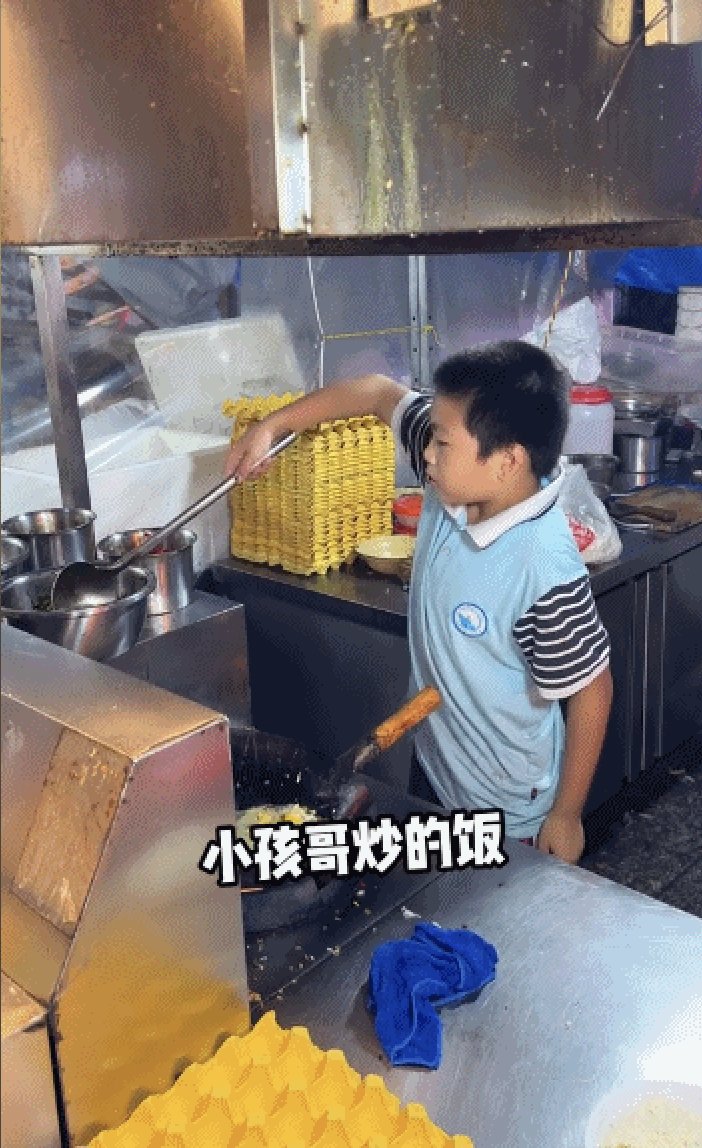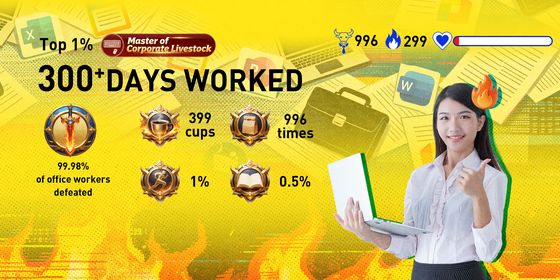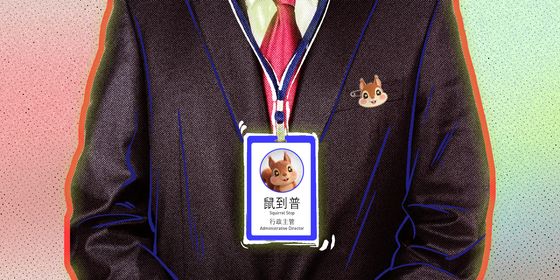China’s netizens are in awe at children who show wisdom beyond their years
Gone are the days when China’s kids were merely cartoon enthusiasts and diligent homework-doers. Born in or after 2010, often referred to as “post-10s (一零后 yīlínghòu),” some of them have already become teachers and therapists, navigating adults through the complexities of life in the digital age.
Children, especially naughty ones, have been labeled 熊孩子 (xióngháizi, bear child) or 小毛孩 (xiǎo máohái, little hairy child) for years, but now kids have earned a more respectful moniker. Netizens are beginning to address some of them as “big brother child (小孩哥 xiǎohái gē)” and “big sister child (小孩姐 xiǎohái jiě).” They use honorifics like “big brother” and “big sister” to express admiration for children, some still in elementary school, who exhibit skills, attitudes, and social abilities that belie their years.
The terms originated from a video showing a boy skillfully frying food in a pan, but has since expanded to all kinds of “child prodigies (满级小孩 mǎnjí xiǎohái)” online: chefs, dancers, and expert debaters. “They may be young, but they sure display seniority (主打一个,岁数虽小,但辈份到位了 Zhǔdǎ yí gè, suìshu suī xiǎo, dàn bèifen dàowèi le),” gush netizens online.
A popular video online captures elementary school students confronting a middle-aged woman who warned them against playing near her grandchild: “Who allowed you to come here then?” the children ask the auntie. Netizens’ praise was almost unanimous: “When confronted, they stand firm. Truly fearless! (当代小孩哥:遇强则强,彻底疯狂!Dāngdài xiǎohái gē: Yù qiáng zé qiáng, chèdǐ fēngkuáng!)”
Another popular video confronted netizens with their culinary ineptitude. While they are living on “survival foods (生命体征维持餐 shēngmìng tǐzhēng wéichí cān)”—simple, unprepared foods like raw vegetables—some child vloggers are showcasing their kitchen prowess. These young chefs are on film preparing everything from sea urchin dumplings to intricate desserts. Some are left wondering: Is it children, or pot noodle-loving adults that truly need nurturing?
“Did I get left behind when humans were evolving or what (人类进化的时候是没叫上我吗 Rénlèi jìnhuà de shíhou shì méi jiàoshàng wǒ ma)?” one netizen joked online. But it’s not just these children’s skills that have netizens amazed, it’s their mature outlook on life.
On Douyin (China’s version of TikTok), 9-year-old vlogger Mobu Moji has been hailed as a “life tutor (人生导师 rénshēng dǎoshī).” His fearless spirit has captivated overworked and anxiety-ridden young professionals, with his memorable quotes including: “Instead of blaming oneself, point fingers elsewhere (与其指责自己,不如埋怨他人 Yǔqí zhǐzé zìjǐ, bùrú mányuàn tārén)” and “Question your motivations more than your actions (少问自己为什么,多问自己凭什么 Shǎo wèn zìjǐ wèishéme, duō wèn zìjǐ píng shénme).”
“How are they so young yet seem to have wisdom beyond their years (为啥他们小小年纪却一把年纪的 Wèishá tāmen xiǎoxiǎo niánjì què yì bǎ niánjì de)?” many netizens are left asking.
As in the saying “A newborn calf is not afraid of tigers (初生牛犊不怕虎 Chūshēng niúdú bú pà hǔ),” these youngsters are so inexperienced they don’t fear danger or risk. In contrast, adults bogged down by involution find it increasingly challenging to live in a state where they are “neither as experienced as the old nor as carefree as the young (上不如老,下不如小 shàng bùrú lǎo, xià bùrú xiǎo).”
But as an emerging generation of “digital natives (数字时代原住民 shùzì shídài yuánzhùmín),” born during the prime of the mobile internet in China, these children are more inclined to express themselves online and motivate others as they do. As Mobu Moji has said many times: “Reject the tendency of self-doubt (拒绝精神内耗 Jùjué jīngshén nèihào).”
These child influencers are not only popular but also appear leaps ahead of adults mentally, leaving many netizens marveling at their duality: “having the most innocent of faces, yet speaking weighty words teeming with wisdom (顶着最人畜无害的脸,说着最语重心长的话 dǐngzhe zuì rén chù wú hài de liǎn, shuōzhe zuì yǔzhòng xīncháng de huà).”

